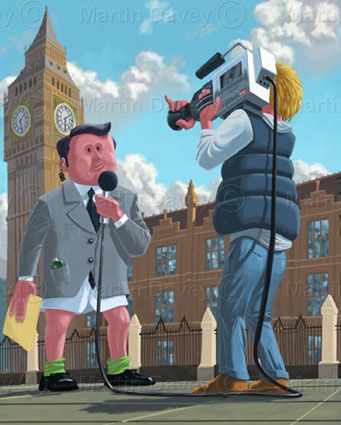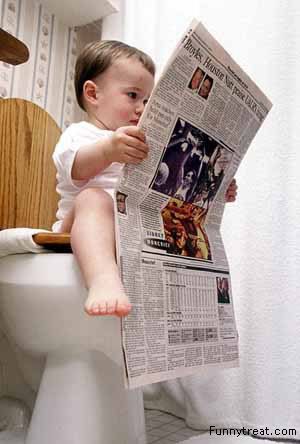Lance Armstrong has dismissed disgraced cyclist Floyd Landis's allegations that he saw the seven-time Tour de France winner use illegal drugs on a team bus.
Stripped of his 2006 Tour de France title for doping, Landis has admitted that he regularly doped as a rider.
Landis also accused cycling boss Johan Bruyneel and Armstrong of paying off a cycling official over a failed test.
"We have nothing to hide. With regards to the specific claims, they're not worth getting into it," Armstrong said.
Armstrong has often been accused by his rivals and critics of cheating but has never officially failed a doping test and has always maintained his innocence.
"I'm not going to waste my time or your time. It's our word against his word. I like our word," added Armstrong, with his long-time coach Bruyneel standing next to him. "We like our credibility."
The 32-year-old Landis has sent a series of e-mails to cycling officials and sponsors acknowledging and detailing his long-term use of banned drugs, and accusing former team-mate Armstrong of doing the same, including once on a team bus during a race.
American Landis claimed Armstrong and Bruyneel paid an International Cycling Union official to cover-up a test in 2002 after Armstrong purportedly tested positive for the blood-boosting drug EPO.
In an e-mail sent to USA Cycling chief Steve Johnson, Landis said Armstrong's positive EPO test was in 2002, around the time he won the Tour de Suisse.
However, Armstrong won the Tour de Suisse in 2001, not 2002, prompting the cycling great to say: "We're a little confused, maybe just as confused as you guys. The timeline is off, year by year."
The UCI released a statement saying it had "never changed or concealed a positive test result."
Landis also alleged that Bruyneel had introduced Landis to practices including steroid patch use and blood doping.
Bruyneel led the US Postal team which later became Discovery Channel, to victory in eight of nine Tour de France races from 1999, including Armstrong's seven successive wins between 1999-2005.
Landis joined US Postal in 2002, and teamed with Armstrong in three Tour de France campaigns before winning in 2006 riding for Phonak.
Landis also implicated other cyclists, including Armstrong confidant George Hincapie.
"I have been a professional on the circuit for 17 years - which is one of the longest careers in the peloton," said Hincapie.
"During that time, I have earned the respect of my peers and a reputation for working hard, honestly and honourably. I'm really disappointed to hear these accusations."
Landis says he is speaking out now partly because World Anti-Doping Agency's statute of limitations for doping offences of eight years meant his evidence would shortly become unusable.
"I made some misjudgements and want to clear my conscience," Landis told ESPN. "I don't want to be part of the problem any more."
Team Radioshack's Armstrong, 38, spoke to reporters before the start of the fifth stage of the Tour of California.
"I think history speaks for itself here," Armstrong said. "We don't know what he did or didn't do during the Tour. We followed the case, followed all the drama with regards to the [Landis] case. And now we see something different.
"At the end of the day, he pointed the finger at everybody still involved in cycling, everybody that's still enjoying the sport, everybody that still believes in the sport, everybody that's still working in the sport, was in the crosshairs."
Landis lost his appeal against being banned for two years and stripped of the 2006 Tour title at the Court of Arbitration for Sport, which threw out his case in June 2008 and ordered him to pay $100,000 (£69,000) in judicial costs to the US Anti-Doping Agency.
His attempts to clear his name are believed to have cost him some $2m (£1.4m).
Landis revealed he first used performance-enhancing drugs in 2002 when he was a member of the US Postal team.
He said he had used testosterone, human growth hormone and female hormones as well as making use of frequent blood transfusions.
He also confessed to a one-time experiment with insulin, adding he was never threatened or forced to take drugs.
However, Landis maintains the result of his test at the 2006 Tour, when he was riding for Swiss team Phonak, was inaccurate and that he had been taking human growth hormone and not the synthetic testosterone he tested positive for.
skip to main |
skip to sidebar


“India is a geographical term. It is no more a united nation than the Equator.”

Dear Friends, This is Muthukumar from Bangalore, India. I was born and bought in Sankarankovil, Thirunelveli Dist. Presently I am working in XIPHIAS Software Technologies Pvt Ltd as a Senior SEO Specialist / SEO Team Lead. I am having 7+ years of exp in Search Engine Optimization (SEO) & Search Engine Marketing (SEM), Social Media Marketing Indstry. If you have any queries, comments & blog exchange request. Please contact this mail id: allnewsinformation@gmail.com






































Google Search

Custom Search
My Links
Google Map Locations
Google Web Element
Latest News Page Views
Welcome to Current News Blog
Jai Hind!! I am Proud of an Indian

“India is a geographical term. It is no more a united nation than the Equator.”
About Me

Dear Friends, This is Muthukumar from Bangalore, India. I was born and bought in Sankarankovil, Thirunelveli Dist. Presently I am working in XIPHIAS Software Technologies Pvt Ltd as a Senior SEO Specialist / SEO Team Lead. I am having 7+ years of exp in Search Engine Optimization (SEO) & Search Engine Marketing (SEM), Social Media Marketing Indstry. If you have any queries, comments & blog exchange request. Please contact this mail id: allnewsinformation@gmail.com
Followers
Latest News - Translation Language
Latest News Updates

Don't Take Stress


World Trade Center


Beautiful Monalisa



A Reporter sincerity......


Iam not going without Newspaper...


Rugby News

Athletics


USA Current News

USA Latest Current Events

Basketball, Ice Hockey

different type of AD promotion

Baseball News

Australia News

Football News


Latest News

UK - London News

Business News


Latest News in USA

World Wide Business News

International Business news

Entertainment News

Weather News Across the World

Top Stories and much more......

World News

USA Today

USA Baseball Stadium

Baseball Game in USA

USA Peoples Celebration

Latest All News Categories
61st Miss World
(1)
72 migrants in the country's north
(1)
Accident News
(3)
Afghanistan News
(3)
Africa News
(11)
American News
(1)
Animal News
(1)
Anna Hasare News
(2)
Anna Hazare
(1)
Asia News
(3)
Asian Stocks
(1)
Aussies News
(1)
Australia News
(2)
Australia vs South Africa News
(1)
Baby News
(1)
Balochistan Latest News.
(1)
Bangalore Metro Rail News
(1)
Bangalore News
(1)
Bangkok news
(1)
Barack Obama News
(5)
Bengal News
(1)
Brazil News
(4)
Burma News
(1)
Business News
(40)
Camera News
(1)
Canada news
(2)
Caribbean News
(2)
Castle League Test Match
(1)
Cat News
(1)
Champions League News
(2)
Chennai Super Kings
(1)
Children Days 2011 News
(1)
Children News
(1)
China News
(8)
Christmas News
(1)
Cinema News
(2)
Colorado News
(1)
Colorado Springs Fire News
(1)
Congo News
(1)
Cricket News
(15)
Crocodile News
(1)
Crocodiles
(1)
Cuba News
(1)
Current News
(6)
Current Telangana Affairs
(1)
Curriculam Vitae
(1)
CV
(1)
Delhi News
(1)
Delhi quake
(1)
Denver News
(1)
Dhoni
(1)
Discover News
(2)
DNS Changer
(1)
DNS Computer Virus
(1)
Earth
(1)
Earth Quake in India
(1)
Earth Quake News
(1)
Earth Quakes in India
(1)
Earthquake in Delhi
(1)
Earthquake News
(1)
Education News
(1)
Egypt Election News
(2)
Egypt News
(7)
Egypt Protest News
(1)
Egypy Election News
(1)
Election News
(2)
Entertainment News
(21)
Euro News
(1)
Europe News
(5)
Facebook News
(2)
FBI Alerts
(1)
FIFA World Cup 2010
(1)
Florida News
(2)
Foot ball News
(1)
Football News
(1)
France News
(3)
French News
(1)
Gingrich News
(1)
Global Warming
(1)
Goa News
(1)
Gold Mining News
(1)
Greece News
(1)
Haiti News
(1)
Harbhajan News
(1)
Health Care
(3)
Health Information
(3)
Health News
(23)
Health Tips
(2)
Hillary Clinton News
(1)
http://ibnlive.in.com/news/sc-decries-forceful-religious-conversions/141078-3.html
(1)
http://www.youtube.com/watch?v=fhXda5JtVXw
(1)
India Accident News
(2)
India News
(66)
India Political News
(1)
India Vs England Preview
(1)
India's Tourist Spot
(1)
Indian Cricket Team
(2)
Indian Cricket Team Caption
(1)
Indian Cricket Team News
(3)
Indian IT Firms
(1)
Indian Latest Mission News
(1)
Indian News
(1)
Indian Political News
(6)
Indian Politics
(15)
Indian Politics News
(2)
Indian Sports
(1)
Indian Team News
(1)
Indonesia News
(3)
Information Technology News
(1)
International Space Station
(1)
IPL auction: Players under hammer
(1)
IPL News
(1)
Iran News
(5)
Iraq News
(2)
Iron Mining News
(1)
IT Company
(1)
Italy News
(1)
Jayalalitha News
(1)
Journalists shot
(1)
Karachi Earth Quake News
(1)
Karachi News
(2)
Karnataka News
(1)
Kolkata News
(1)
Latest Accident News in India
(2)
Latest Current News
(3)
Latest MIssion Launching Rocket News
(1)
Latest News in India
(6)
Latest Political News
(8)
Latest US News
(2)
Latin America News
(3)
Launching News
(1)
London news
(1)
Los
(1)
Maharashtra News
(2)
Mars
(1)
Mars News
(1)
Mars.
(1)
Mexico News
(3)
Michael Ballack
(1)
Middle East
(1)
Mining News
(1)
Miss World 2011
(1)
Moscow News
(1)
Myanmar Election News
(1)
Myanmar News
(1)
Narendra Modi News
(1)
Nasa Information
(1)
Nasa Space News
(2)
Nasa Space Station Information
(4)
Nepal News
(1)
New York Banking
(1)
New York News
(1)
New York Storm News
(1)
New Zealand News
(1)
News Today
(1)
Nigeria News
(1)
Nigerian News
(3)
North Korea
(2)
Norway Attacks
(1)
Norway News
(1)
Nuclear News
(1)
Obama and Romney Debate
(1)
Obama and Romney Poll
(1)
Obama News
(1)
Obama Speech
(1)
Pakistan Earth Quake News
(1)
Pakistan News
(20)
Pakistan-US Relations News
(1)
Pakistani ambassador’s
(1)
PHILADELPHIA News
(1)
philippines News
(3)
Planet News
(1)
Poland News
(1)
Political Cartoons
(1)
Political News
(2)
Pollachi News
(1)
Pope News
(1)
Population News
(1)
Porsche 911 News
(1)
President Obama News
(1)
Protest News
(1)
Protests in Mumbai
(1)
Protests News
(1)
Rahul Gandhi
(1)
Red Planet
(1)
Reno News
(1)
Resume News
(1)
Resume Preparation
(1)
Resume Tips
(1)
Rocket Satellite
(1)
Romney News
(1)
Russia News
(1)
Sachin Tendulkar
(1)
Sanjeev Bhatt's News
(1)
sankarankovil election 2012
(1)
sankarankovil election Booth wise
(1)
sankarankovil election Candidates wise
(1)
sankarankovil election result
(1)
sankarankovil election results 2012
(1)
sankarankovil election tamil nadu
(1)
Saudi Arabia News
(1)
Saudi King Abdulla News
(1)
Science News
(10)
Sharad Pawar News
(1)
Sikkim News
(1)
Social Networking News
(2)
Software Companies
(1)
South Korea News
(1)
Spacecraft
(1)
Sports
(2)
Sports New
(1)
Sports News
(77)
Sri Sri Ravi Shankar News
(1)
Srilanka News
(1)
Standard Chartered News
(1)
Storm News in USA
(1)
Sunami News
(1)
Syria News
(3)
Tamil Nadu News
(3)
TamilNadu News
(1)
Technology News
(5)
Telangana News
(1)
Telangana Problems
(1)
Telangana Updates
(1)
Tesla Motors Model
(1)
Thai government
(1)
Thailand News
(1)
Thanksgiving News
(1)
Tibet News
(1)
Today Top Stories
(1)
U S Military News
(1)
U.S News
(3)
U.S Secretary News
(1)
U.S.A News
(1)
UEFA Euro 2012 News
(1)
UK News
(11)
UK NewsHare Krishna temple in the east Midlands town
(1)
Ukraine News
(1)
United States Of America News
(3)
US Banking
(1)
US News
(2)
USA
(1)
USA Cinemas
(1)
USA Health News
(3)
USA News
(51)
USA President Election 2012
(1)
USA Sports News
(1)
USA Stock News
(1)
Vehicle News
(1)
Victoria Nuland News
(1)
Weather News
(5)
World Business News
(1)
World Cup News
(10)
World Cup Semi Finals News 2011
(1)
World Entertainment
(1)
World Events
(2)
World News
(104)
World Population News
(1)
World's Oldest Cat
(1)
X-Rays News
(1)
Yahoo Corporate Building
(1)
Yahoo News
(1)
Yahoo Search Engines
(1)
Blog Archives
- May (20)
- June (61)
- July (39)
- August (135)
- September (71)
- October (68)
- November (10)
- December (15)
- January (12)
- February (17)
- March (14)
- April (8)
- May (18)
- June (6)
- July (8)
- August (12)
- September (14)
- October (21)
- November (23)
- December (11)
- January (7)
- February (10)
- March (10)
- April (6)
- May (5)
- June (6)
- July (2)
- August (3)
- September (1)
- October (6)
- November (3)
- December (2)
- January (2)
- February (1)
- March (1)
- April (1)
- June (2)
- July (10)
- August (4)
- September (1)
- November (1)
- January (1)
Latest Traffic & Other Details on Google Analytics
Popular Posts
-
Reach 3 'On track' BANGALORE: The excitement surrounding the city’s first metro rail facility surely seems to have settled. Now...
-
Sankarankovil - Sankara Narayanar, Gomathi Ambal Temple Sankarankovil is one of the main constituencies of the district Tirunelveli ...
-
(NewDesignWorld Press Center) - Kan Business Wire — Garmin International Inc., a unit of Garmin Ltd. (NASDAQ: GRMN), the global leader in s...
-
A plane on Wednesday crashed into the Margalla Hills , about 30 kms away from Islamabad airport , behind the Pakistani capital Islamabad . A...
-
Rock star Bryan Adams provided the sparks as a dazzling opening ceremony, showcasing a vibrant blend of sub-continental traditions and mode...
-
Goa's illegal iron ore mining may have made headlines in recent times PANAJI : Goa's illegal iron ore mining may have made head...
-
7.2-magnitude earthquake rocks in Japan A 7.2-magnitude earthquake that struck off the coast of Japan this afternoon has triggered a sma...
-
Samsung's official India online store has started taking pre-orders for the recently launched Galaxy S4 Zoom at Rs. 29,390 . Samsung G...
-
Srinagar - Jammu national highway closed for 2nd day The Srinagar-Jammu national highway remained closed for the second day Friday as sno...



 Posted in:
Posted in: 







0 comments:
Post a Comment